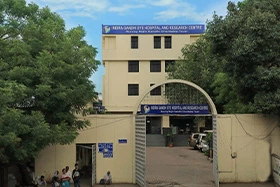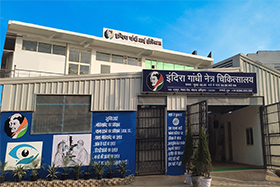- Applanation tonometry
- Gonioscopy
- HFA – Humphery Field Analyser (Zeiss)
- OCT- Optical Coherence Tomography (Zeiss)
- Fundus photography (Zeiss)
- ASOCT – Anterior segment Optical Coherence Tomography (Zeiss)
- Email: enquiry@indiragandhieyehospital.com
- Call: 01242710271
Glaucoma Surgery in Lucknow
Early diagnosis and treatment focused on reducing pressure inside the eye are crucial for preserving vision. At each Indira Gandhi Eye Hospital and Research Centre, we have a modern Glaucoma unit equipped with state-of-the-art technology.
Our facility offers a range of treatments, including Glaucoma Surgery in Lucknow, which are considered best in class in northern India. We have a team of experienced surgeons, acclaimed both nationally and internationally, who are experts in various types of Glaucoma treatment, including Glaucoma Laser Surgery in Lucknow, ensuring a high success rate.
Our comprehensive care extends to patients of all ages, from newborns to the elderly, assuring them of receiving the best possible Glaucoma care. Additionally, we pride ourselves on our training centre, where numerous ophthalmologists have been skillfully trained in glaucoma diagnostics and management techniques.
_11zon.webp)
Technical set up
- Specular Microscopy
- Biometry
- Digital Photography
- Nd-YAG laser
- Laser suture Lysis
- Diode CPC – Cyclophotocoagulation
Treatment
- Antiglaucoma medications
- Laser Procedures
- Surgical Proceduress
Surgical services
- Trabeculectomy with or without Mitomycin C or 5-FU
- Combined Trabeculectomy with IOL implantation (Phaco/Manual Phaco)
- Trabeculotomy + Trabeculectomy
- Glaucoma drainage Devices – Valve/Tube implants
- Minimal invasive glaucoma surgery
- Bleb Needling
- Bleb Repair/Revision
- Laser Iridotomy
- Laser Suture Lysis
- Laser Hyaloidotomy
- Laser Vitreolysis
- Diode laser Cyclophotocoagulation
- Cyclocryo




